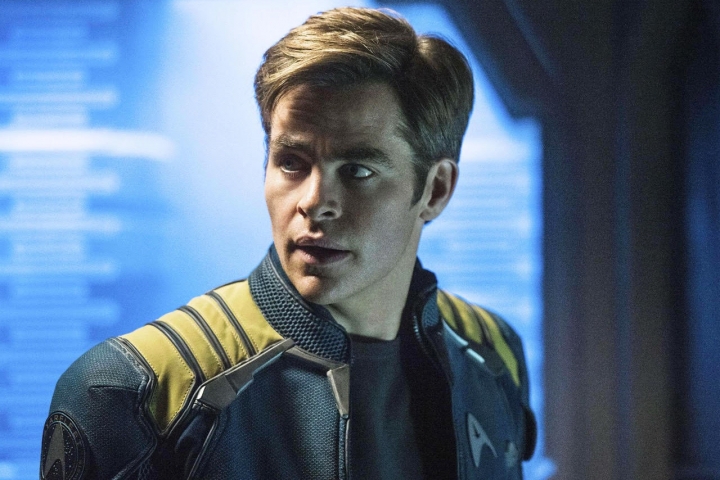
The first few bars of the theme music for “Star Trek: The Next Generation” sounds more like ambient music at a yoga retreat than the introduction to an ’80s-era imagination of the year 2364. Then things speed up, soaring into a marching band-esque crescendo, and it’s clear: This is the future.
The Star Trek franchise includes 12 movies, eight television shows, two theme park attractions, two magazines, about 850 novels and 17 series of comic books. The cultural impact of the show can’t be understated — it’s where we got “live long and prosper,” “beam me up, Scotty” and “make it so.” It inspired “Galaxy Quest” and “Futurama,” a few notable scenes in the music video for Eminem’s “We Made You” and even a 2010 training video made by the Internal Revenue Service.
The franchise garners the kind of obsession that’s endearingly embarrassing: flashing the Vulcan hand salute, having intimate knowledge of Klingon chess, making detailed costumes for conventions. “Trekkie” has become cultural shorthand for a very specific kind of fixation. It suggests, with a patronizing wink, that wanting to be part of the world of “Star Trek” requires a mix of social isolation and naiveté. Instead I think it requires hope, or a profound lack of it.
At the height of my Star Trek fandom, I was never the kind of enthusiast who found themselves mired in the minutiae of the show. Instead, it was the big picture that I latched onto. I watched “Star Trek: The Next Generation” with my mom when I was in middle school; we liked the cleanliness of the Starship Enterprise and the grand, sweeping views of planets and stars. The world of the show (an immense silver vessel, aliens with ridged foreheads) seemed very far away from the setting and context of my life at the time: our little row home in Philadelphia, homemade pumpkin ice cream, math homework, forgetting to hang my suit up to dry before swim practice. Now, rewatching the show, the associations have become reverse engineered. “Star Trek” is inextricable from the way it felt to be fourteen and think the future could contain absolutely anything.
According to “Star Trek,” everything we’re worried about right now will be OK. There will be other things that go wrong — a species intent on taking over the universe, arguments between factions of aliens — but these concerns are foreign enough that they’re intriguing rather than scary. The show depicts its fair share of pain and suffering, but usually it’s the aliens who suffer in any permanent way; when humans do, it’s an aberration from the new normal that’s been created. By the time the Enterprise is exploring new worlds, we’ve eliminated climate change, war, disease, xenophobia and sexism. On Earth, everything is as it should be.
In the rest of the universe, though, these things still exist, and nearly every conflict on the series involves starship crews becoming entangled with random and calculated unfairness, cruelty and moral complication. We get Klingon in-fighting, alien merchants selling slaves, a civilization about to be decimated by its dying star. “Star Trek: The Next Generation” is especially prone to depicting easily-recognizable versions of real quandaries. The characters encounter everything from sex trafficking to territorial disputes on distant planets, and they’re forced to confront moral codes that exaggerate the ironies and falsehoods of our own beliefs.
Familiar dramas play out: Apartheid is displaced onto a matriarchal society in “Angel One,” and the Israel-Palestine conflict plays out with a group of alien separatists in “The High Ground.” Here lies the ethical problem with “Star Trek,” and also the thing that is so deliciously attractive about it: Every earthly dilemma has been outsourced to an alien species, and we get to be the arbiters of goodness, the agents of scientific reason. Who wouldn’t want to buy into this vision of the future?
When I was in middle school and watching “Star Trek” I imagined we were moving closer toward the show’s version of the future: egalitarian, democratic, creative. Now when I watch the show, I vacillate between hope and escapism. I want to believe that “Star Trek” is predictive of how things will turn out for humanity. I want us to wander the universe in brightly colored uniforms, listening to operas sung by sentient robots. I hope we will find our way to peace. But if that’s not what the future holds, if it’s more war and injustice and greed that we’re headed for, then all I want is to watch Captain Picard hold court on the bridge one more time.

